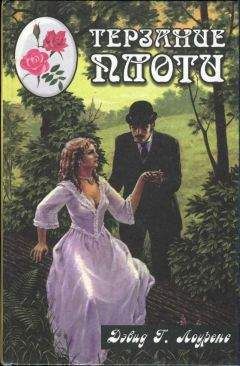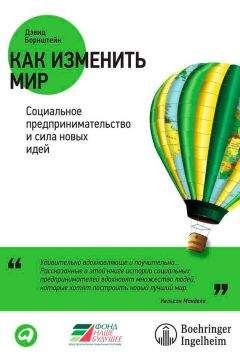Дэвид Пристланд - Красный флаг: история коммунизма
652
G. Benton, Mountain Fires. The Red Army’s Three-Year War in South China, 1934—1938 (Berkeley, 1994); G. Benton, “Under Arms and Umbrellas. Perspectives on Chinese Communism in Defeat”, in Saich and Van de Ven (eds.), New Perspectives, pp. 116—43.
653
Об этом см. Н. Van de Ven, War and Nationalism in China, 1925—1945 (London, 2003).
654
Об этом см. Chen Yung-fa, Making Revolution. The Communist Movement in East and Central China, 1937—1945 (Berkeley, 1986), esp. ch.3. Обзор литературы о данном споре см. в L. Bianco, “Responses to ССР Mobilization Policies”, in Saich and Van de Ven, New Perspectives, ch. 7.
655
W. Hinton, Fanshen. A Documentary of Revolution in a Chinese Village (New York, 1966), pp. 137—8.
656
Chen, Making Revolution, pp. 187—8.
657
O. Westad, Decisive Encounters: the Chinese Civil War, 1946—1950 (Stanford, 2003), pp. 115—18.
658
R. Thaxton, Salt of the Earth. The Political Origins of Peasant Protest and Communist Revolution in China (Berkeley, 1997), ch. 9.
659
K. Hartford, “Repression and Communist Success: The Case of Jin-Cha-Ji, 1938—1943”, in K. Hartford and S. Goldstein (eds.), Single Sparks. China’s Rural Revolutions (Armonk, NY, 1989), p. 27.
660
Bianco, “Responses”, pp. 181—2.
661
Pye, Guerrilla Communism, p. 124.
662
Там же, с. 211.
663
Pye, Guerrilla Communism, pp. 228, 229.
664
Там же, сс. 248, 296.
665
Там же, сс. 297» 301.
666
Westad, Decisive Encounters, ch.4. О коррупции и законности действий чиновников Гоминьдана см. S. Pepper, Civil War in China. The Political Struggle, 1944—1949 (Lanham, 1999), pp. 155—60.
667
Об этом см. Westad, Decisive Encounters, p. 10.
668
Там же, с. 259.
669
Chang-lai Hung, “Mao’s Parades. State Spectacles in China in the 1950-5”, China Quarterly 190 (2007), p. 415.
670
Yong-ho Ch’oe, “Christian Background in the Early Life of Kim Il-Song”, Asian Survey 26 (1986), pp. 1082—91.
671
A. Lankov, From Stalin to Kim II Sung: the Formation of North Korea, 1945—1960 (London, 2002), pp. 17—19.
672
0 Yong-jin, quoted in R. Scalapino and C.-S. Lee, Communism in Korea. Parti: The Movement (Berkeley, 1972), pp. 324—5.
673
С Armstrong, The North Korean Revolution, 1945—195° (Ithaca, 2003), pp. 68—70.
674
Lankov, From Stalin to Kim, ch. 3.
675
Duiker, Communist Road, p. 105.
676
Duiker, Ho, p. 69.
677
D. Marr, Vietnam 1945. The Quest for Power (Berkeley, 1995), P-106.
678
Ho Chi Minh Selected Writings (Hanoi, 1977), pp. 55—6.
679
В. Kerkvliet, The Ник Rebellion. A Study of Peasant Revolt in the Philippines (Berkeley, 1977).
680
Chin Peng, My Side of History (Singapore, 2003), pp. 47—8.
681
Cheah Boon Kheng, The Masked Comrades: a Study of the Communist United Front in Malaya, 1945—48 (Singapore, 1979).
682
R. Stubbs, Hearts and Minds in Guerrilla Warfare: the Malayan Emergency, 1948—1960 (London, 1989).
683
A. Aman, Architecture and Ideology in Eastern Europe during the Stalin Era (New York, 1992), pp. 90—3.
684
W. Brumfield, A History of Russian Architecture (Cambridge, 1993), p. 490.
685
K. Tyszka, Nacjonalizm w Komunizmie. Ideologia Narodowa w Związku Radzieckim i Polsce Ludowej (Warsaw, 2004), PP-115—41; Martin Mevius, Agents of Moscow: the Hungarian Communist Party and the Origins of Socialist Patriotism, 1941—1953 (Oxford, 2004), pp. 249—62.
686
N. Khrushchev, Khrushchev Remembers. The Last Testament, trans, and ed. S. Talbott (London, 1974), p. 98.
687
Aman, Architecture, pp. 88—9.
688
Цит. по К. Boterbloem, Life and Death under Stalin. Kalinin Province, 1945—1953 (Montreal, 1999), p. 188.
689
M. Harrison, Accounting for War. Soviet Production, Employment, and the Defence Burden, 1940—1945 (Cambridge, 1996), pp. 160—2.
690
M. Edele, «”More than just Stalinists». The Political Sentiments of Victors 1945—1953”, in J. Furst (ed.), Late Stalinist Russia. Society between Reconstruction and Reinvention (London, 2006), p. 176.
691
D. Filtzer, Soviet Workers and Late Stalinism: Labour and the Restoration of the Stalinist System after World War II (Cambridge, 2002), pp. 34—9.
692
Там же, сс. 22—5; G. Ivanova, Labor Camp Socialism. The Gulag in the Soviet Totalitarian System, trans. C. Flath (Armonk, NY, 2000), p. 116; A. Applebaum, Gulag. A History (London, 2004), P. 518.
693
E. Ginzburg, Within the Whirlwind (London, 1989), pp. 71—2.
694
О. Pohl, The Stalinist Penal System (Jefferson, NC, 1997), p. 131.
695
D. Filtzer, Soviet Workers, p. 242.
696
C. Hooper, “A Darker «Big Deal»”, in Fiirst, Late Stalinist Russia, p. 147.
697
Цит. по Y. Gorlizki and O. Khlevniuk, Cold Peace: Stalin and the Soviet Ruling Circle, 1945—1953 (New York, 2004), pp. 32—3.
698
Российский государственный архив социально-политической истории [РГАСПИ]. Ф. 558. Оп. и. Д. 732. Л. 19.
699
N. Krementsov, Stalinist Science (Princeton, 1997), p. 181; D. Joravsky, The Lysenko Affair (Cambridge, Mass., 1970).
700
Khrushchev, Khrushchev Remembers, p. 263.
701
И. Сталин. Сочинения, т. XIII, с. 28.
702
A. Weiner, Making Sense of War (Princeton, 2001), ch. 4.
703
Цит. по Gorlizki and Khlevniuk, Cold Peace, p. 156.
704
V. Dunham, In Stalin’s Time: Middleclass Values in Soviet Fiction (Cambridge, 1976), p. 92.
705
M. Kundera, The Joke (London, 1992), p. 71.
706
Там же, с. 32.
707
M. Pittaway, Eastern Europe 1939—2000 (London, 2004), P. 57.
708
J. Mark, “Discrimination, Opportunity, and Middle-Class Success in Early Communist Hungary”, Historical Journal 48, 2 (2005), pp. 502—7.
709
C. Milosz, The Captive Mind, trans. J. Zielomko (New York, 1990), pp. 98—9. Русск. текст цит. по Ч. Милош. Порабощенный разум. СПб.: Алетейя, 2003.
710
D. Crowley, “Warsaw’s Shops, Stalinism and the Thaw”, in S. Reid and D. Crowley (eds.), Style and Socialism (Oxford, 2000), p. 36.
711
Pittaway, Eastern Europe, pp. 110—11.
712
A. Janos, East Central Europe in the Modern World. The Politics of the Borderlands from pre- to post-Communism (Stanford, 2000), pp. 247—8.
713
T. Toranska, Oni: Stalin’s Polish Puppets, trans. A. Kolakowska (London, 1987), p. 298.
714
Janos, East Central Europe, p. 247.
715
Milosz, The Captive Mind, pp. 61—2.
716
W. Leonhard, Die Revolution entldsst ihre Kinder (Cologne, 1957), pp. 487, 493—7.
717
G. Hodos, Show Trials. Stalinist Trials in Eastern Europe, 1948—1954 (London, 1987), ch. 7.
718
C. Epstein, The Last Revolutionaries. The German Communists and their Century (Cambridge, Mass., 2003), pp. 136—7,144.
719
Цит. по С Jones, Soviet Influence in Eastern Europe: Political Autonomy and the Warsaw Pact (New York, 1981), p. 7.
720
Toranska, Oni, pp. 335—6.
721
S. Beria, Beria My Father: Inside Stalin’s Kremlin (London, 2001), p. 141.
722
W. Taubman, Khrushchev. The Man and his Era (London, 2003), p. 214.
723
Toranksa, Oni, pp. 235—6.
724
H. Margolius Kovaly, Prague Farewell (London, 1988), pp. 118—19.
725
S. Bartolini, The Political Mobilization of the European Left, 1860—1980: the Class Cleavage (Cambridge, 2000), pp. 542—3.
726
I. Wall, French Communism in the Era of Stalin: the Quest for Unity and Integration, 1945—1962 (Westport, Conn., 1983), p. 125.
727
D. Desanti, Les Staliniens, 1944—1956: une experience politique (Paris,1975).
728
Об этом см. Т. Judt, Postwar. A History of Europe since 1945 (London, 2007), pp. 212—13.
729
M. Adereth, “Sartre and Communism”, Journal of European Studies 17 (1987), p. 10.
730
F. Fanon, The Wretched of the Earth, preface Jean-Paul Sartre, trans. С Farrington (Harmondsworth, 1967).
731
Об этом см. G. Kern, The Kravchenko Case: One Man’s War on Stalin (New York, 2007).
732
M. Hyvarinen and J. Paastela “FailedAttemptsatModernization. The Finnish Communist Party”, in M. Waller, Communist Parties in Western Europe: Decline or Adaptation? (Oxford, 1988), p. 115.
733
S. Gundle, “The Legacy of the Prison Notebooks: Gramsci, the PCI and Italian Culture in the Cold War Period”, in C. Duggan and С Wagstaff (eds.), Italy in the Cold War. Politics, Culture and Society 1948—58 (Oxford, 1995), p. 139.


